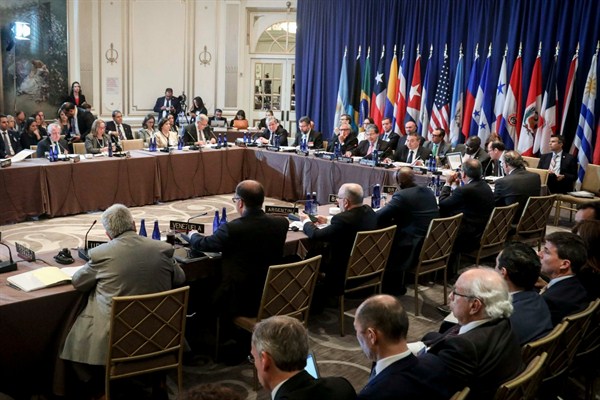The Organization of American States took a new step late last month that it hopes could lead to an end to the ongoing crisis in Venezuela—but that others fear may spark an armed conflict between Venezuela and its neighbor, Colombia. On Sept. 23, the OAS voted to take punitive actions against as-yet-unspecified members of President Nicolas Maduro’s government through a somewhat obscure mechanism: the Inter-American Treaty of Reciprocal Assistance, also known as the Rio Treaty, or the TIAR by its Spanish acronym.
The TIAR is a mutual defense treaty among 19 states in the Western Hemisphere. Signed in 1947, it has a driving principle similar to NATO: an attack on one member country is an attack on all of them. The possibility of using the treaty against Maduro—so its members could cooperate on sanctions as well as on law enforcement against drug trafficking and other criminal activity tied to Caracas—had percolated throughout the summer. The first meaningful step toward the treaty’s activation came on Sept. 11, when 12 of its members voted in favor of invoking it. They decided to delay further discussion on the matter, however, until they came together in New York last week for the meeting of the United Nations General Assembly.
The treaty has been activated on several major occasions in the past, including during the Cuban Missile Crisis and the Falklands War. But this was the first time its members had turned to it since 2001, when the United States invoked it after 9/11.

